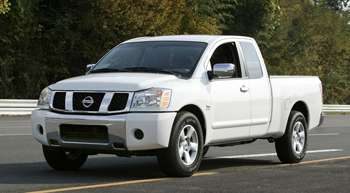Focus on pickup trucks, not Priuses, to reduce gasoline use, emissions

Larger trucks and SUVs with powerful, high-displacement engines are the low-hanging fruit for any policymaker seeking the most efficient path to reducing gasoline use and the associated emissions, according to an issue brief by an expert in the Center for Energy Studies at Rice University's Baker Institute for Public Policy.
This suggests capital investments focused on the larger vehicles Americans favor can most rapidly save the largest quantities of fuel and avoid more emissions at less cost, the brief proposes.
"Seeking Scalable, Cost-effective Reductions in Gasoline Demand and Tailpipe Emissions? Focus on Pickup Trucks, Not Priuses" was authored by Gabriel Collins, the Baker Botts Fellow in Energy and Environmental Regulatory Affairs. The brief explores Environmental Protection Agency ratings versus "real-world fuel economy" and how more efficient pickup and SUV engines are affecting gasoline demand and growth. The brief also looks at how gasoline demand could be impacted as improved engine technologies cycle into a growing portion of the U.S. vehicle fleet and offers suggestions on policies that could accelerate this process.
"The speed and scale of economic, energy and environmental returns on investments to improve internal combustion engines are magnified by the fact that this path allows us to leverage existing fueling infrastructure that was built at great cost—and, which generally speaking, has worked very effectively for decades," Collins wrote. "From a policy perspective, the data shown here suggest that dollars invested in research to improve internal combustion engines and promote gasoline-based hybrid vehicles are likely to yield larger—and faster—returns than investments in pure electric vehicles. The bigger question is whether policymakers will be willing to confront the political optics of appearing to 'double down' on gasoline, when doing so in fact represents the rational first step down a longer road toward a lower-oil use and lower-emissions propulsion future."
U.S. sales of large passenger vehicles have boomed for most of the past decade, Collins said. Yet despite continued reliance on gasoline propulsion in the U.S. and a trend toward larger, more powerful vehicles, the 7.6 percent rise in miles driven from February 2012 to February 2017 yielded a gasoline demand increase of only 3.8 percent, the brief found. "Better engine technology likely underpins much of the rising gasoline consumption efficiency on U.S. roads, and the big, powerful pickups and SUVs cherished by many American drivers are at the center of the action," Collins wrote. For every 100 miles driven, improving the fuel economy of a single Ford F-150 by five miles per gallon can theoretically achieve the same volumetric gasoline savings that would be accomplished by making a six-miles-per-gallon improvement to six Priuses, Collins said.
"Focusing on SUVs and trucks also acknowledges the reality that when truck owners get new vehicles, they typically move into another truck or SUV, often of the same brand and type—not a compact car," Collins wrote. "As such, turnover in the existing pickup and SUV vehicle stock is likely to be a more powerful driver of fuel economy gains, especially in the next five years, than adoption of smaller or totally new vehicles such as electric vehicles."
Finally, gasoline's days as the world's core motor fuel are far from over, Collins said. "In fact, the most likely future is one with two coexisting vectors where gasoline gets used more efficiently—in many cases as part of a hybrid-electric powertrain," Collins wrote.
Collins conducts a range of globally focused commodity market, energy, water and environmental research. His current focal areas include evolutions in the global gasoline market, shifts in China's domestic oil consumption structure, Texas water governance and the food-water-energy nexus.
Provided by Rice University





















